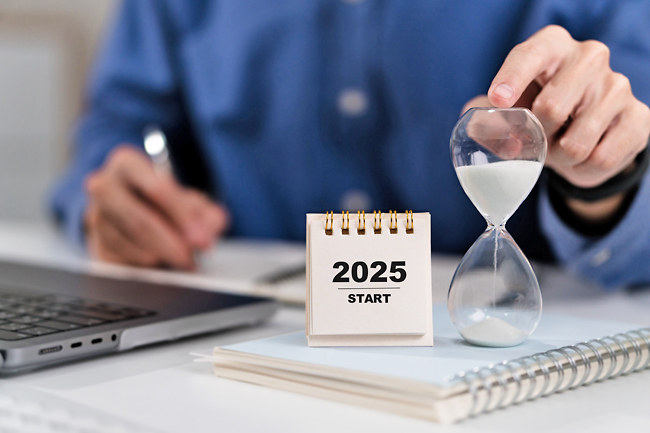A new year is always a great way to start fresh and to begin all over again. And one of the great things about starting a new year is seeing how well you can keep the new year resolutions that you made, many of which will revolve around weight loss for sure after all the feasting and merry-making of the holiday season.
But apart from weight loss, have you included in your new year resolutions to save more?
If so, how are you going to go about doing it to ensure that you stay on track throughout the year?
CREATE A FINANCIAL FORECAST
Creating a financial forecast is actually easier than it sounds. It’s basically a financial plan for 2025 which shows how much you will earn for the year, how much you will spend on monthly expenses and bills, and how much you will save.
If you already have a savings plan in place, for example, transferring BND200 every month to a savings account then you can easily project how much you will have saved for the year which is BND2,400.




If you do not have a savings plan, this will be a good eye opener to get you started as you will come to realise how important having a disciplined savings plan will be.
In your financial forecast, you should also try to project how much you will spend on one-off occurrences throughout the year, for example, car insurances and road taxes, land tax payments, holidays and events.
From there you should then work out how you intend to finance these one-off occurrences and whether your monthly forecast allows for it.
If not, you may have to take into consideration cutting down on certain unnecessary monthly expenses in order to meet the eventuality or on the other hand to do without an unnecessary spending like a holiday.
SPEND LESS ON UNNECESSARY THINGS
There is of course a fine line to draw on what is necessary and what is not. And this line can only be gauged by understanding what a priority is for you and what isn’t.
When you look at your monthly forecast which should also include all your debt or loan repayments, you need to have a comfortable margin of funds left over for emergencies. If all your bills and expenses are leaving you in the red, you are on dangerous ground and you need to make adjustments to your lifestyle so you can improve your financial position.
By spending less on unnecessary things, you can free up your funds for more important things at hand, like paying off a debt or setting up an emergency fund.
Shop wisely on groceries at the supermarkets. Make a list of things you need to buy and ensure that you stick with the list so you do not overspend. Don’t be tempted to buy furniture when you really don’t need it. If all your furniture right now is sufficient, then continue to enjoy them. If your mobile phone is still working fine and serves the basic requirements that you need, then why get a new one? With lower monthly budgets, it is extremely essential to ensure priorities are taken care of first before luxuries can even be considered.
EVER THOUGHT OF BEING CHARITABLE?
For those who can afford to give to charity, do give a thought to making it a regular contribution as opposed to a one-off give.
There are many non-profit organisations in Brunei that you can choose from that will benefit greatly from your financial contribution or your time. The sincere generosity of your charitable contribution will also add significantly to your well-being.
MAXIMISE YOUR SAVINGS AND OTHER FINANCIAL INSTRUMENTS
Whatever form of financial product you have, may have potential to be better than what it currently is and there is much more to be gained if you just put in a little extra effort on them. If you have money sitting in a plain savings account, think about transferring it to a fixed deposit instead; this will earn you higher returns than a normal savings account.
Likewise, if you have funds in a fixed deposit, consider unit trusts or premium currency deposits that allow you to maximise the returns that you can get from your savings.
Making plans is easier said then done, so remember to be realistic in your goal setting and good luck for the year ahead.
This article is for general information purposes only and while the information in it is believed to be reliable, it has not been independently verified by us. You are advised to exercise your own independent judgement with the contents in this article. – Standard Chartered Bank



